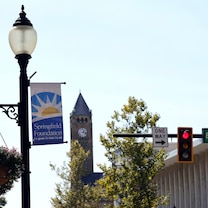Psychologist Laments Lackluster 9/11 Memorials
One first responder and mental health expert says more remembrance needed.
Sept. 11, 2012— -- On this 11th anniversary of the 9/11 terrorism attacks, I believe I better understand the feelings of returning vets feel when their experiences seem overlooked and unrecognized.
In my opinion, not enough public attention is being paid to the 11th anniversary of the terrorism attacks on the World Trade Center when such attention can help heal the long-lasting scars from that tragic event.
First, 5th, 10th, and 20th anniversaries of all kinds are duly celebrated, with 25 years given special distinction of being called "silver," the 50th, "gold," and the 75th, "diamond."
Little notice would have been paid to the recent 7th anniversary of one of the biggest national tragedies in our country -- Hurricane Katrina -- were it not for Tropical Storm Isaac falling on the same day.
In-between-year anniversary dates matter little to the news media, or to the general public, but do matter much to those of us who have been close to these disasters.
Right after 9/11, I was one of the mental health volunteers assigned to the perimeter of "the pit" -- the hole left by the fallen towers, but more tragically the tomb of those who perished -- helping the first responders. We handed out water and gloves and sweaters as some nights throughout the fall evenings were chilly. Many weeks later, I was assigned to the Family Assistance Center on a pier uptown on the Hudson River, to help the families who lost loved ones.
The range of emotions about what happened -- from desolate pain to intense anger -- were powerful at the time. For many, those feelings do not disappear but resurface years later. Like for millions of women and men who have been abused, the experiences may be buried but linger for decades or a lifetime. Psychological research proves that such emotional reactions commonly resurface in what we call "Anniversary Reactions," on the date of the event.
My colleague, noted Louisiana neurological psychologist Darlyne Nemeth, and I have written about this phenomenon in professional journals that inspired the wellness workshops we conducted to help residents of Louisiana deal with these similar feelings a year after Katrina.
While being a professional gives me tools to be able to understand the cycle of these emotions, and know how to cope, I am also a citizen who has experienced the trauma firsthand and needs to heal.
Research shows that healing is a lengthy process. It is also a process necessary not only for those who were close to a disaster, but for the Diaspora and even for those who have suffered similar losses where 9/11 triggers similar memories. For that reason, highlighting a major global event like 9/11 on a regular basis can give everyone an opportunity to face their feelings.
Why are public events important?
Pain can exacerbate when you feel no one cares, leaving you feeling isolated.
With less hoopla about the 11th anniversary of 9/11, I personally feel sadness and disappointment. Every past year, the interfaith community, led by the Reverend T.K. Nakagaki, participated in a major memorial at Pier 40 on Hudson River, with prayers by the interfaith ministers, remarks from community leaders, and rituals like the Japanese lantern-lighting where messages are written on paper lanterns then set out in the Hudson River spotted by kayaks. I hosted this ceremony in 2010, and every year since 2006, my songwriting colleague Russell Daisey performs our anthem, "Towers of Light," that was written after 9/11 to honor the heroes and the nearly 3,000 souls who perished.




